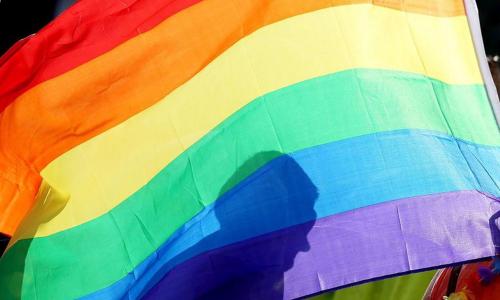LETTER | S'pore decriminalises gay sex, how about M'sia?
LETTER | According to the news, Singapore is going to decriminalise gay sex, an offence under Section 377A of the country’s Penal Code. By recognising the right to having private sexual behaviour between consenting adult males, the government of Singapore will repeal S.377A.
Meanwhile, in the annual national day rally speech, Singapore Prime Minister Lee Hsien Loong mentioned that the legal definition of marriage as being between a man and a woman would remain and in order to further protect the definition of marriage, the Constitution of Singapore would be modified to prevent any challenge against the constitutionality of the said definition in courts.
After all, such is to promote the revocation of Section 377A in a controlled and carefully considered way to accommodate the needs on both sides.
Sharing similar legal roots, the Singaporean and Malaysian Penal Code were adopted from the Indian Penal Code where the role of Christianity was vital in establishing the legal framework of “crimes” in these British colonies.
Gay sex is criminalised in our Penal Code, where Section 377A stipulates that any person who has sexual connection with another person by the introduction of the penis into the anus or mouth of the other person is said to commit carnal intercourse against the order of nature.
Section 377B states that whoever voluntarily commits carnal intercourse against the order of nature shall be punished with imprisonment for a term which may extend to 20 years and shall also be punished with whipping.
Interestingly, unlike Singapore’s Section 377A, which explicitly criminalises such sexual behaviour between two men, the Malaysian Penal Code provides wider restrictions where any sexual behaviour by introducing the penis into the anus or mouth of a man or a woman, is prohibited.
In Malaysia, recent developments regarding homosexuality could be seen via the case of Iki Putra Mubarrak v Kerajaan Negeri Selangor. In this case, the accused successfully displaced the presumption of the constitutional legitimacy of Section 28 of the Syariah Criminal Offences (Selangor) Enactment 1995.
Basically, it means that the court held that the aforementioned provision used to charge the accused is unconstitutional and void.
However, it does not mean that homosexuality is legal in our nation. Instead, the court upholds the proposition that homosexuality belongs to the subject matter of “criminal law” contained in the Federal List of our Constitution.
To put it succinctly, only Parliament could make laws against sexual intercourse against the order of nature, resulting in a situation where only the law legislated by the Parliament of Malaysia could be used to prosecute people engaging in such prohibited sexual behaviour.
In this case, the said law should be Section 377A of the Malaysian Penal Code.
So to say, it would be different if in the first place the accused was charged under the relevant provision of the Penal Code instead of the state law. The case of Iki Putra provides a significant implication where the law from any state criminalising homosexuality would be challenged.
Apart from homosexuality, other laws concerning other aspects like gambling, which has been legislated by different state legislatures, could also be challenged in court as gambling is one of the offences contained in the Federal List, showing the exclusive power of the Parliament to enact such legislation.
The development in Singapore on such an issue is definitely noteworthy for neighbouring countries.
As understood, Singapore is the latest place in Asia to move on LGBT rights, after India, Taiwan and Thailand. The LGBT activists might be ecstatic to say that this is a brilliant move from the Singaporean government to provide relief to the LGBT communities.
However, I opine that Singapore remains a typical Asian society where her authorities are very vigilant on many sensitive issues and averse to blindly abiding by every single “Western norm”.
This is evident from the fact that the Singaporean government would still be upholding the institution of marriage between one man and one woman, notwithstanding the repeal.
Surrounded by Muslim-majority countries like Indonesia and Malaysia, when dealing with issues like homosexuality, I would say the government of Singapore is quite progressive, but simultaneously, cautious too.
PM Lee said that decriminalising gay sex provided under the colonial-era Section 377A is the right thing to do, and something that most Singaporeans will accept.
This is in line with what people have always called “what transpires in the bedroom should always remain in the bedroom”.
Meanwhile, I have lingering doubts over whether Malaysians are ready to accept such, in view of the fact that many struggles, such as the fight for fairer citizenship laws, remain in our nation.
The views expressed here are those of the author/contributor and do not necessarily represent the views of Malaysiakini.
RM12.50 / month
- Unlimited access to award-winning journalism
- Comment and share your opinions on all our articles
- Gift interesting stories to your friends
- Tax deductable
